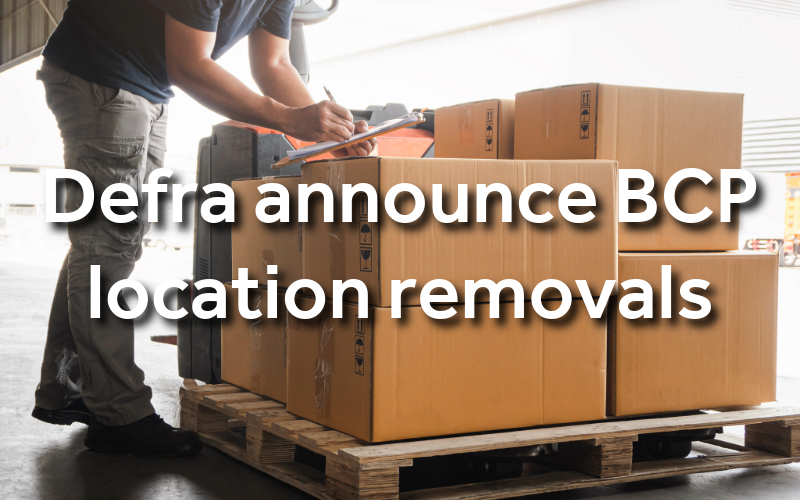
Defra announces removal of some BCP locations
As mentioned in the Association’s newsletter last week, from 30th April 2024 significant changes will be introduced to import controls associated with a new system referred to as the Border Target Operating Model (BTOM).
The BTOM represents a departure from the current practice of permitting site or premises-based physical inspections, but also the nature of inspections. From 30th April, physical inspections including phytosanitary checks will be carried at purpose-built facilities called Border Control Posts (BCP) on imported goods.
For BCP to be authorised for use by Animal and Plant Health Agency (APHA) officials as part of these phytosanitary inspections, Border Control Posts must ensure they meet specific criteria.
Failure to meet specified criteria will mean sites are no loner authorised to handle plants and plant products as part of the importation process. As most BCP are run as commercial enterprises, there is no obligation for their operators to undertake actions specified by APHA to achieve BCP designation.
A recent update by Defra has revealed a number of sites currently in operation will not be able to handle plants and plant products from 25th April 2024:
- (Hurn) Bournemouth Airport (plants)
- Baltic Wharf (plants)
- Chatham (plants)
- Goole Port (plants)
- Grimsby Port (plants)
- Hartlepool (plants)
- Ipswich Port (plants)
- Kings Lynn Port (plants)
- Leeds Bradford Airport (plants)
- Liverpool John Lennon Airport (plants)
- Milford Haven (plants)
- Motis FSA Ltd Dover
- Newcastle Airport (plants)
- Plymouth City Airport (plants)
- Port of Boston (plants)
- Shoreham Port (plants)
- Teesport (plants)
From 25 April 2024, importers or agents currently relying on the BCPs listed above are required to use alternative BCPs or CPs that are approved for plants and plant products.
Importation of plants and plant products from European countries is a vital part of the horticultural supply chain in GB; most retailers and wholesalers in Great Britain rely to some extent on plants and plant materials imported from Europe for stock.
However, retailers and wholesalers are concerned about the effects of the new importing regime, particularly in relation to supply chain issues caused by more stringent inspection regimes. Many remain unconvinced about the viability of inspecting planting materials without causing significant delays to the delivery dates of materials.
The Association will remain focussed on the issue and liaise with members affected by the new regime.
Further reading
